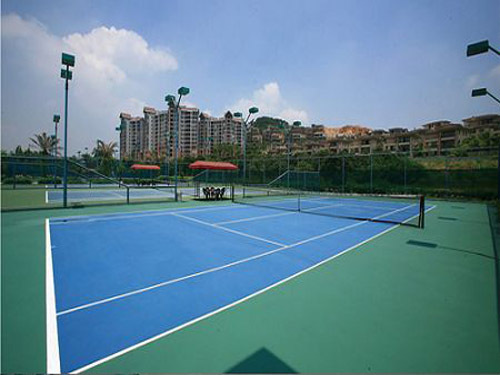Can SAP save the acrylic industry?
In recent years, with the large-scale expansion of domestic acrylic acid production, the market has plummeted, and last year it was among the leading list of declines in major chemical products. According to statistics, in 2014, domestic acrylic acid production increased rapidly by more than 700,000 tons, and the total production capacity reached 2.75 million tons, and the output reached 1.81 million tons. Compared with 2013, the production capacity increased by 36% and the output increased by 19%. In 2015, more than 600,000 tons of new capacity will be put into operation. At the same time, the downstream demand growth will be stagnant, and the acrylic industry will usher in a serious oversupply crisis. Can SAP, which has good prospects for the downstream of acrylic acid, make a difference and save the entire industry? Customized Handle,Matte Gold Door Handle,Black Copper Wardrobe Handle,Electric Four-Wheel Door Handle Zhaoqing Muyi Hardware Products Co., Ltd , https://www.muyihardware.com
We know that the largest use of acrylic acid is to produce general-purpose acrylates for coatings, adhesives, and sealants, accounting for about 60% of total acrylic acid consumption; SAP is the fastest-growing category of acrylic acid consumption in recent years. 20% of total consumption. SAP is widely used in baby diapers, women's cleaning products, adult incontinence pads, drug moisturizers, desiccants, concrete additives, and agriculture, forestry and water conservation. Among them, personal hygiene products accounted for 90% of total consumption; agriculture and forestry horticulture accounted for 6% of total consumption; cable water-blocking materials accounted for 2% of total consumption; other areas accounted for 2% of total consumption. Under the current circumstances, only by adjusting the consumption structure of acrylic acid, and strengthening the application of SAP and specialty acrylate fields, can it have a positive effect on alleviating industry excess capacity.
At present, the world's SAP production capacity is mainly distributed in Asia, North America and Western Europe, and the technology is mainly concentrated in the hands of companies such as Japan and Germany. By the end of 2014, the global SAP's total production capacity was approximately 2.93 million tons/year, and the capacity growth rate in the next few years was approximately 4.8%. The main manufacturers include Japan Catalyst (5.6 million tons/year), Evonik Industries (495,000 tons/year), BASF (477,000 tons/year), Sumitomo Elaboration (280,000 tons/year), and three major polymers. (280,000 tons/year), Danson Technology (260,000 tons/year), LG Chemical (180,000 tons/year), and Formosa Plastics (155,000 tons/year). In October 2014, Nippon Shokubai announced plans to expand its SAP production capacity in Himeji, Japan, by 50,000 tons/year to 370,000 tons/year; in May 2015, it also confirmed that it will invest 350 million euros in expansion of Belgium's acrylic and SAP. Capacity, a new 100,000 tons/year acrylic unit will be built, and SAP's capacity will be increased by 100,000 tons/year. With the help of the yen's weakness and the competitive advantage brought by the drop in crude oil prices, Japanese acrylic manufacturers continue to accelerate their transition with their technology and market advantages, divest the uncompetitive general chemicals business, and develop higher-value advanced materials businesses.
On the domestic front, SAP's growth rate is also extremely rapid. According to statistics, by the end of 2014, the total capacity of SAP in China reached 890,000 tons/year, and the output was nearly 510,000 tons. In the past five years, the average annual growth rate of production capacity and production has reached more than 30%, and the overall scale has accounted for nearly 30% of the international market. China has become the world's largest acrylic acid market. There are more than 20 SAP production companies in China, but the larger and mid-to-high-end SAP companies are mainly foreign-funded enterprises, among which Yixing Danson Technology (Singapore), Nantong Sanda (Japan), Ningbo Formosa Plastics, Nanjing Yangba, and Shanghai Win. Chuanghe and Zhangjiagang Chemicals and other foreign-funded enterprises accounted for about 70% of the total production capacity. The size of other SAP production companies in the country is small, and the production process is unstable. There is still a certain gap between the technology of Japan and Germany. The domestic SAP products mainly grapple with the low-end market, and the baby with high product quality requirements is not wet. The high-end SAP market for women's health uses is dominated by foreign companies.
In the coming years, with the relaxation of the national second-child policy, the domestic SAP project will also develop rapidly. Among them, Yixing Danson Technology plans to increase its total production capacity to 420,000 tons/year, and other companies including Quanzhou Banglida Technology, Selbang Petrochemical, and Sanda (Nantong) will increase their production capacity to 510,000 tons/year. If the new project can be put into production on schedule, it is expected that the average annual growth rate of production capacity and production will reach over 10% from 2015 to 2019.
At present, although China is a big country for the production and consumption of acrylic acid, there are still many gaps from becoming an acrylic acid country. Acrylic acid production facilities in China are almost entirely imported from Japan or Germany with the "two-step oxidation of propylene" package technology, and its core catalyst depends on imports, which occupies a large proportion in the production cost. In terms of SAP, domestic technology has not passed, and product quality and scale have not been able to compete with international advanced technologies. Domestic SAP companies must base themselves on independent innovation, break the technological monopoly, realize cost reduction and efficiency increase, and actively explore overseas markets to take up the responsibility of saving the acrylic industry. Let us wait and see.